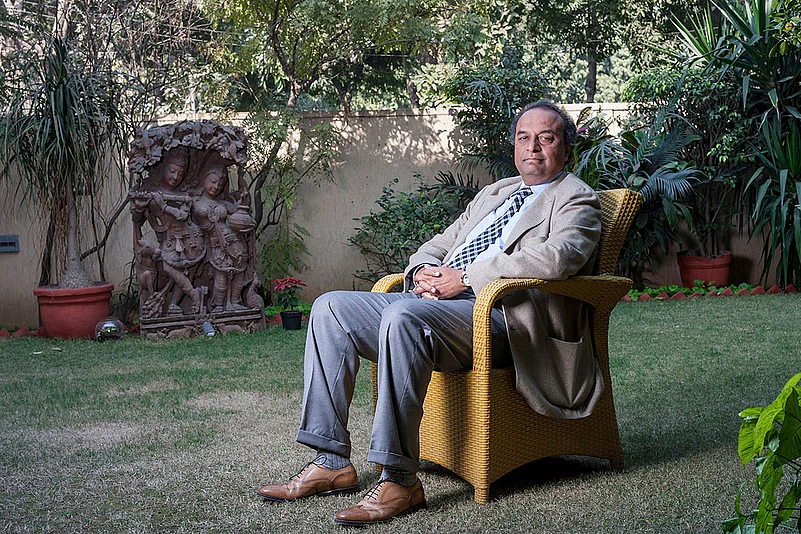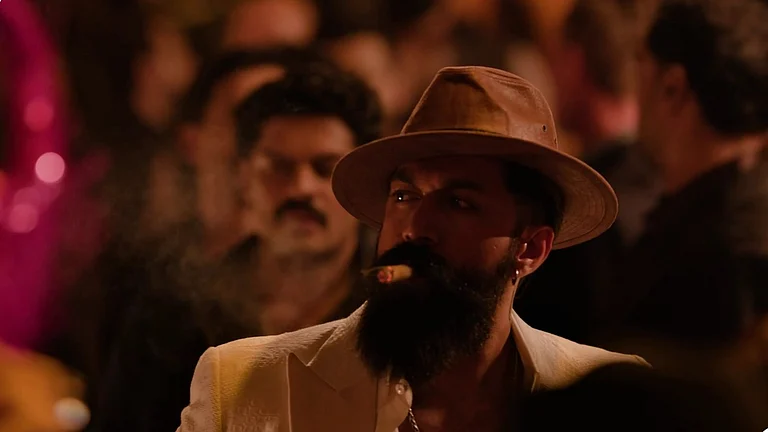As a busy Supreme Court lawyer, he was almost always pitted against the government, like his predecessors. So how does it feel being the number one law officer of the government and defend it? Mukul Rohatgi spoke candidly and disarmingly of his eventful tenure as attorney-general in an interview with Ushinor Majumdar. Excerpts from the interview :
Since your appointment, have you tried to change the government’s role as the largest litigant in the country?
It is easy to call it that but all cases are begun by private parties against the government at lower levels. Unburdening courts has to be a multi-pronged approach. It cannot work only through increasing the number of judges or reducing the government cases. More judges and more judgements generate further litigation. We are trying to remove regulations and archaic laws, change procedures, remove so many appeals, etc. In income-tax, there are five levels: assessing officer, ITT, ITAT, HC and SC. A corporate group will take a dispute of Rs 50 lakh up to the SC. Nobody would refrain from filing an appeal but, in a large number of cases, I advise the government not to file an appeal. In some cases, they come back for reconsideration but that’s only in 10 per cent of the cases. In hundreds of cases, till now, I have advised the government against filing an appeal.
Are courts being over-involved in economic affairs in recent times?
According to me, there is too much interference by courts on issues that are best left to the executive. Judicial activism has happened largely in the last 20-25 years. It’s gone into issues that don’t concern the court or that courts are not equipped to decide, such as whether a dam of a particular size and height should be erected on a particular river.
Should court be involved in cricket administration?
BCCI is slightly different from the dam example. This nation loves cricket — it is a hangover from the British era. This is a body that represents India and selects the Indian cricket team. The whole country watches when India plays which makes it a public exercise. It could clean up these bodies and match fixing but it has to be on a case-to-case approach.
The government was counting on winning the NJAC case, it meant a lot in jurisdiction terms. How do you view the defeat?
As a professional, I don’t treat the outcome of cases as defeat or victory. In any big case, one is deeply involved but it is difficult to call it a personal defeat. It is not a combat or battle against a judge or the opposite side. You put your point across but in this case the court thought otherwise.
Do you regret your comments undermining two retired Supreme Court judges during the NJAC hearing?
No. You must call a spade a spade. If someone questioned me and I say I have argued only five cases during my term as A-G, would you accept it? I don’t have anything against any judge. We were talking about transparent selection of judges. When you select a lawyer to become a judge, the criteria should be experience, reasonable income to display his popularity in the courts, minimum 25 cases argued in the last year and so on. When a high court judge is elevated to the apex court, you observe their integrity and if they have pulled their weight. If the judge has experience but hasn’t pulled his or her weight, you are taking up a space in the SC that was probably meant for someone else.

You argue about transparency in the appointment of judges. Shouldn’t there be more transparency in the A-G’s appointment?
Appointment of a lawyer is a matter of confidence between client and lawyer. I am not a member of a political party. You may think I am closer to BJP because I have lot of friends in the BJP but I also have a lot of friends in the Congress. As a private lawyer in 2010-13, I did a lot of cases for leaders of Samajwadi Party, AIADMK, Congress and many others. If a party finds a lawyer to be competent and apolitical in that sense, you go to him. I have appeared for Laloo Yadav and I have also appeared against him. The same for Mulayam. I have represented Jayalalitha. You choose counsel through referrals and inquiries, not by floating a tender. It’s a question of confidence, comfort.
In one of your first cases, you advised the government to pay Rs 1,800 crore to Reliance ADAG for the DMRC airport dispute. ADAG has been your client for long.
I have appeared for almost every corporate house - Reliance, Aditya Birla Group, Mahindra.... If I don’t touch a case in which these groups are involved, I will hardly have any work in the SC. Conflict of interest must be seen in a proper perspective. These corporates have a large number of cases in the apex court. Everyday, I am doing a large number of taxation matters for the government against these groups. I’ve given many opinions against them also but you have picked one where I have advised to do something (in their favour) but there are others where I have said not to do something.
Why did you favour CBI/police having to secure sanction for investigating public servants, especially government officers?
The purpose of obtaining sanction is to create a filter, whether under section 197 of the Criminal Procedure Code or Sec 6 of the Delhi Police (SE) Act. As a government servant, your actions leave a large number of people disgruntled and trigger many complaints against public servants. If you don’t have a filter, and all these cases go to court, the accused has to appear in court and they will not be able to discharge their duties. Sanction is not to shield a person who has done wrongdoing. In my view, when sanction is sought, it should be promptly decided. The law does not specify a deadline. In Vineet Narayan’s case, the SC did say you should do it in three months and if you need the A-G’s advice, you can take four months. But, the prescription has to be by legislation and time has come for that prescription to be made.
You also gave the controversial opinion that Aligarh Muslim University is not a minority institution?
Yes, a year ago. The reason is completely legal. I am an apolitical person, I don’t differentiate between parties, religions or classes. My opinion said AMU had been set up by an act of provincial parliament in the 1920s. A minority institution under the Constitution is one set up by a minority, such as Christian colleges. We are a secular nation, which cannot set up, by an act of Parliament, a university, hospital or a college for a single religious group. That will be a complete anti-thesis of a secular nation. BHU might have the name Hindu in it but it was set up by an act of Parliament and is not meant only for Hindus. In the Aziz Badshah case, a five-judge bench held 40 years ago that it is not a minority institution. In the SC, I stated that the ministry was misinformed in believing it’s a minority institution.
Does having a friend as the FM interfere with your independence in functioning? What if he were to give you the axe for disagreeing with his opinion?
No, I wouldn’t mind at all becoming a private lawyer again tomorrow.
What is your stand on the SC decision on section 377 of IPC (that criminalises homosexuality)?
My personal view is the judgement of the Delhi High Court was correct and the judgment of the SC which reversed it was not correct. There is now an additional angle which will come up that the apex court has now recognised the transgenders. The judgment says, just as you read males and females in a form, there must be a third space/box for transgenders. So, how do you coexist with a Victorian-era law after the SC has now judicially recognised transgenders? The SC was correct in referring it to a constitutional bench.
You justified extra-judicial killings by saying “killings are part of the sovereign function discharged by the Union of India through the army”
That was a misquote. AFSPA is in force in Manipur, under which the Army has a different role from during war; or at borders; or while controlling civil unrest when called upon by civil administration. These disturbed areas are also surrounded by hostile neighbours. Under AFSPA, your job is to catch militants and in the discharge of that duty, if somebody fires at you, you can fire back even if it means death. In civil unrest, you don't fire till the end and even if you do, you fire at the leg. But here, it is akin to a war. It is either him or me. We don’t know who the person is but if he fires, you are bound to fire back and he may get killed. You are in a war-like situation within your own borders.
That’s a Victorian-era presumption that the person, who has been killed, is an enemy of the state. Also, “discharge of sovereign function” sounds like a totalitarian philosophy
It has been pulled out of context. I also said that if one bullet is fired at me, I will fire 20. That makes it sound like the army is waging a war inside the borders, but that is not so. It’s in the context of a warlike nation, where we are surrounded by hostile neighbours. Many of our security forces are killed every day but it does not find place in the so-called intolerance debate. AFSPA entitles an army officer to return fire at militants — home-grown, from across the border or a collaboration of both. Extra-judicial killings are not sanctioned by law, they must be booked and tried. The Indian Army is not a rogue army — it is a disciplined force.
A shorter, edited version of this appears in print


























